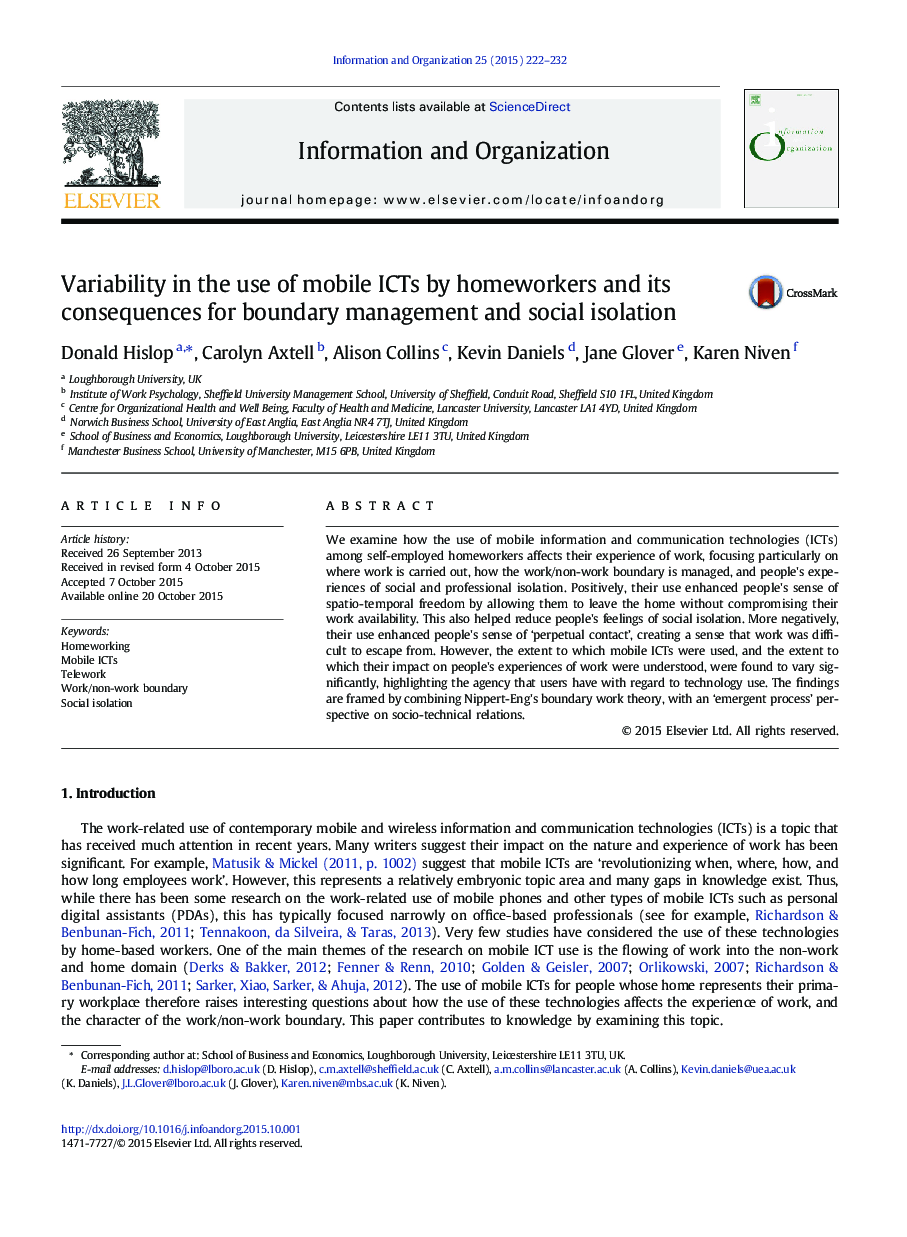| کد مقاله | کد نشریه | سال انتشار | مقاله انگلیسی | نسخه تمام متن |
|---|---|---|---|---|
| 555238 | 874036 | 2015 | 11 صفحه PDF | دانلود رایگان |
• Highlights diverse attitudes to work-related mobile ICT use by self-employed homeworkers.
• Work-related mobile ICT use enhanced levels of spatio-temporal freedom.
• Work-related mobile ICT use helps reduce isolation through allowing people to leave home while remaining available for work.
We examine how the use of mobile information and communication technologies (ICTs) among self-employed homeworkers affects their experience of work, focusing particularly on where work is carried out, how the work/non-work boundary is managed, and people's experiences of social and professional isolation. Positively, their use enhanced people's sense of spatio-temporal freedom by allowing them to leave the home without compromising their work availability. This also helped reduce people's feelings of social isolation. More negatively, their use enhanced people's sense of ‘perpetual contact’, creating a sense that work was difficult to escape from. However, the extent to which mobile ICTs were used, and the extent to which their impact on people's experiences of work were understood, were found to vary significantly, highlighting the agency that users have with regard to technology use. The findings are framed by combining Nippert-Eng's boundary work theory, with an ‘emergent process’ perspective on socio-technical relations.
Journal: Information and Organization - Volume 25, Issue 4, October 2015, Pages 222–232
